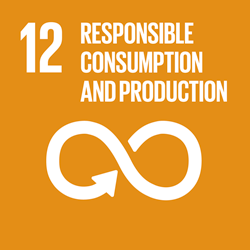Technological watch
Efficiency improvement of hybrid PV-TEG system based on an energy, exergy, energy-economic and environmental analysis; experimental, mathematical and numerical approaches
Nowadays, Photovoltaic panels are being used as effective devices to utilize solar free energy. However, they lose their efficiency when their temperature increases; consequently, a large portion of the solar energy is wasted. In this study, a hybrid system of polycrystalline Photovoltaic panel equipped with Thermoelectric generator modules and combined with water-cooled heat exchangers has been proposed to extract more power from the Photovoltaic meanwhile producing electricity by Thermoelectric generators and absorbing heat by water. Previous studies have been mostly based on a 24-hour simulation while not considering the long-term analysis of the system. This study includes a 24-hour analysis via experimental build testing, mathematical modelling, and finite element simulation, followed by a finite element simulation carried out for one year. This study considers the influence of varying irradiance and thermal resistance on the Photovoltaic, Thermoelectric hot and cold sides and outlet water temperatures on the daily and annual energy, exergy, environmental, and energy-economic outcomes. It was found that the averaged maximum Photovoltaic temperature for the experiment and simulations of the Photovoltaic-Thermoelectric hybrid system was 44.2°C at maximum irradiation. In comparison, it was 57.1°C for the stand-alone Photovoltaic. The electrical power production of the Photovoltaic-Thermoelectric hybrid system was 9.49W, which is noticeably higher than the 8.48W output of the stand-alone Photovoltaic meaning that the electrical efficiency and the exergy efficiency increased by 1.67%, and 1.72%, respectively. The environmental and energy-economic simulations show that the carbon payback period and the discounted payback period are 1.31 and 12.39 years, respectively.
Publication date: 01/08/2022
Author: Mehdi Alian Fini, Derrick Gharapetian, Masoud Asgari






